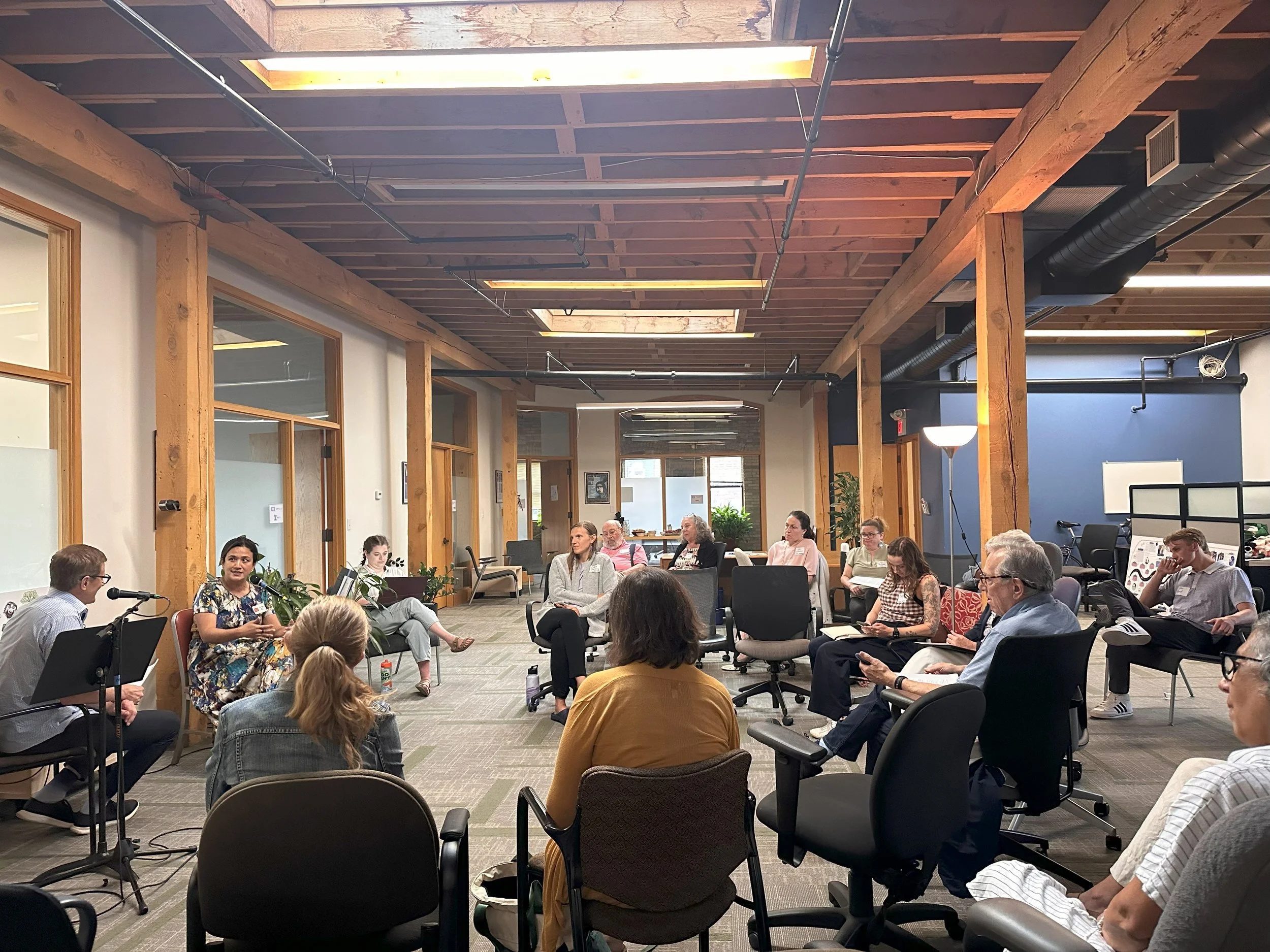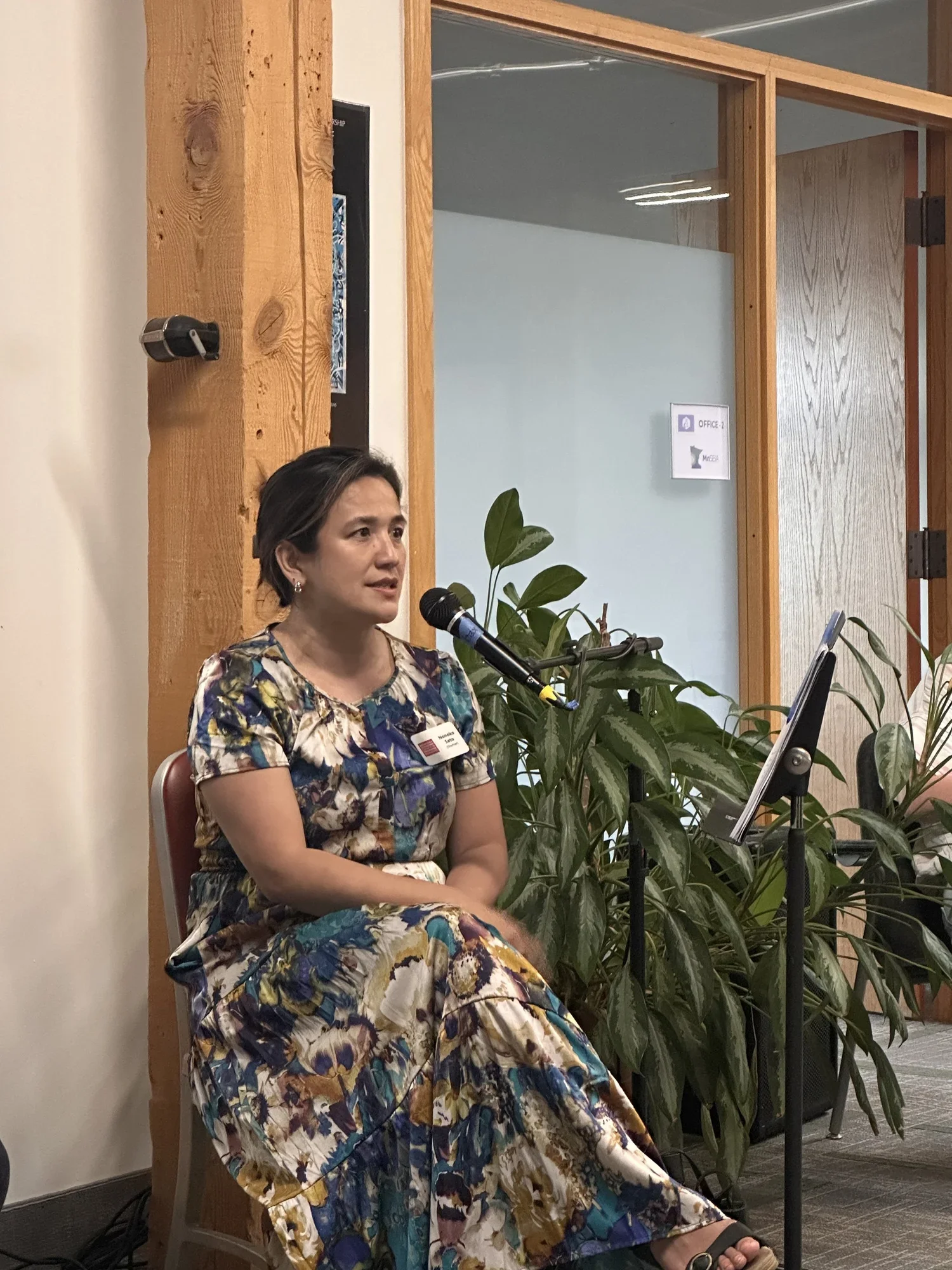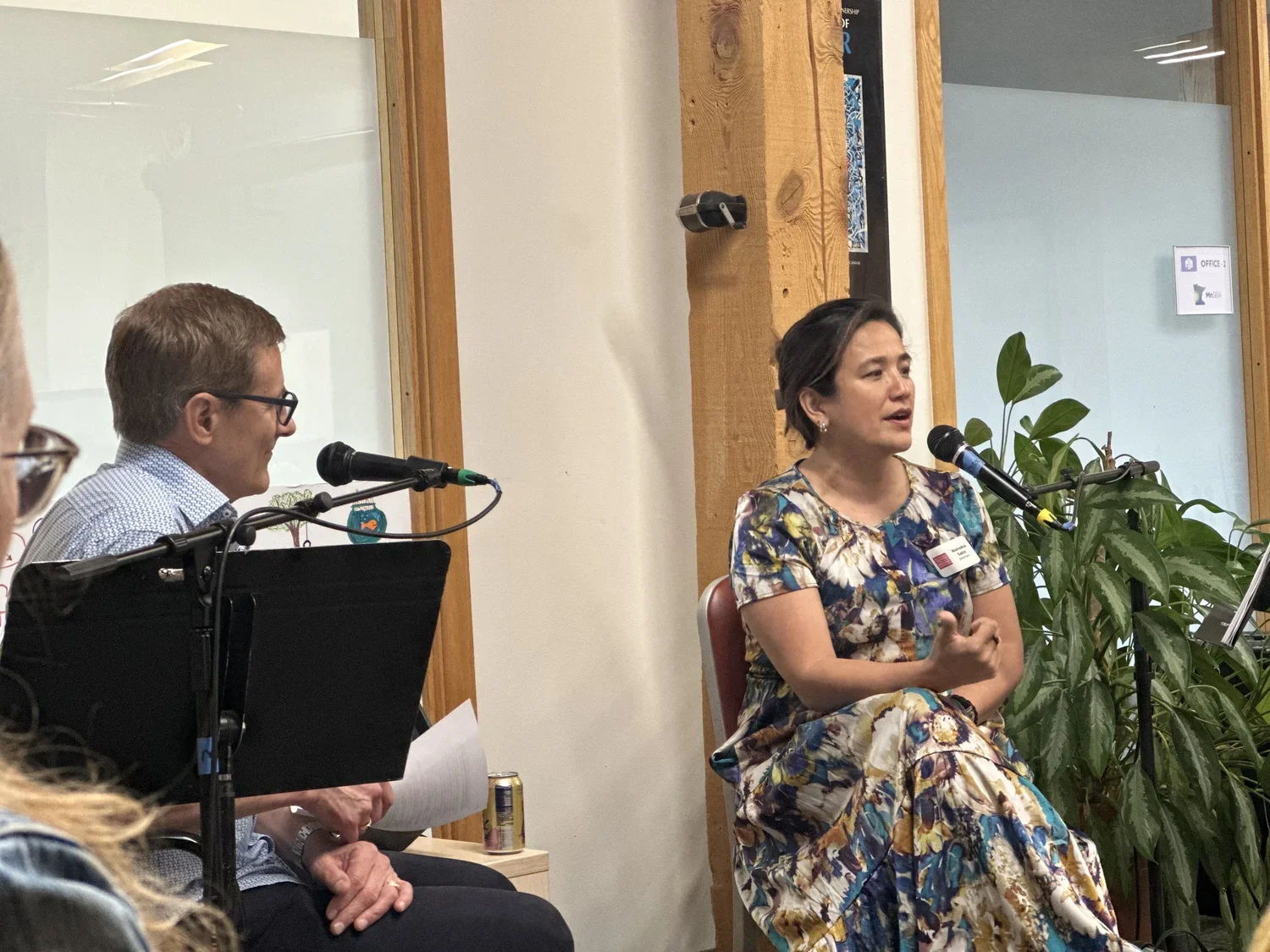Protect, Resist, Build, Bridge: Nonoko Sato on the Future of Nonprofits
On July 23, 2025, Collectivity hosted an in-person Salon Series event with Nonoko Sato, President and CEO of the Minnesota Council of Nonprofits (MCN). Grounded in the Protect, Resist, Build, Bridge framework from the Collective Impact Forum, the conversation invited nonprofit leaders and community members to reflect on urgent questions facing the sector.
Over the course of the afternoon, Nonoko shared candid insights about navigating federal policy shifts, the economic footprint of nonprofits, and the enduring resilience of communities. What emerged was both a sober assessment of challenges and an inspiring call to action.
Nonprofits Under Pressure
MCN, the nation’s largest state association of nonprofits, is often described as the chamber of commerce for nonprofits. With more than 30,000 nonprofit organizations in Minnesota alone, the sector is broad and deeply embedded in community life. Nationally, nonprofits contribute 10% of GDP; in Minnesota, that figure is even higher at 13%.
Despite this significance, Sato noted that nonprofits are increasingly being painted as ‘villains’ in political discourse. Federal actions such as HR9495, a bill that threatened to strip nonprofits of tax-exempt status, and efforts to repeal the Johnson Amendment, which safeguards nonprofit nonpartisanship, have heightened anxieties across the sector.
“Many nonprofits deliver the very services the government is elected to provide,” Sato said, “yet our legitimacy is constantly questioned.”
Power, Advocacy, and Community
Even with these pressures, Sato emphasized that nonprofits hold real influence. Policymakers pay attention when the sector speaks with a unified voice, and advocacy is not just permissible - it is necessary.
MCN’s role, she explained, is twofold: to use its platform to advance the sector and to equip communities with tools to advocate for themselves. From Medicaid to voting rights, Sato urged nonprofits to lift up stories that show what is at stake if organizations are weakened or silenced.
“Community care doesn’t disappear if nonprofit status disappears. Foundations and neighbors will find ways to support one another. Ultimately, it is the community that protects the sector”
Nonoko Sato
Preparing for What’s Next
Participants asked about funding shortfalls, federal program cuts, and board leadership. Sato encouraged organizations to resist a scarcity mindset and instead focus on long-term strategies:
Strengthening boards to understand fiduciary responsibilities and to support, not overshadow, staff.
Prioritizing scenario planning so nonprofits are ready not only for today’s crisis but also for the next.
Investing in advocacy and storytelling, countering narratives that nonprofits are wasteful or fraudulent.
She pointed to innovations like trust-based philanthropy and MCN’s new nonprofit legal services initiative as promising steps toward building durable capacity.
Stories That Shape the Future
Throughout the conversation, Sato returned to the importance of narrative. Nonprofits, she argued, must tell their collective story more powerfully. MCN is even exploring a film project titled A Day Without Nonprofits to illustrate the essential role organizations play in daily life.
Yet she also underscored the need for equity in who gets to tell these stories. Communities of color, rural organizations, and small nonprofits must be centered, not sidelined. “Funders need to be actively listening to the communities they claim to serve, and held accountable for their commitments,” she said.
Playing the Long Game
For Sato, nonprofit leadership is about balancing immediate crises with the long arc of capacity-building. While the sector may hope to ‘work itself out of a job’ by solving the issues it addresses, the reality is that communities will still need care - and nonprofits must be ready.
“The hard choices we make today are what allow us to be stronger tomorrow. The community will always remain to take care of one another, whether or not we call it the nonprofit sector.”
Nonoko Sato
Closing Reflections
This Salon was a reminder of the power of collective dialogue: nonprofit leaders gathered not just to name challenges, but to imagine solutions and support one another. Nonoko Sato’s insights illuminated both the fragility and the resilience of the sector, offering a vision rooted in advocacy, equity, and community power.
Collectivity extends deep gratitude to Nonoko and to all who participated in this timely conversation. Together, we are protecting, resisting, building, and bridging toward a stronger future for nonprofits and the communities they serve.







